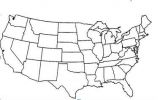| « The Fat Get Fatter: Beware- You're "App" to Choose the Wrong Smart Phone | Fear and Cowardice » |
The Only Game in Town
“I know it’s crooked, but it’s the only game in town,” is a statement generally attributed to 19th Century gambler “Canada Bill” Jones. It seems that it may have present-day relevancy as an apt description of banking in this country. In light of everything that we (should) have learned since the 2008 crash, it does seem stunning that these large-beyond-comprehension institutions still careen through our world like giant financial Pac-men devouring everything they touch. Last weekend’s expose’ in the New York Times about Goldman Sachs’ manipulation of the aluminum market is another example of the Rig-athon which the Masters of the Universe pass off as “free-market” economics. To paraphrase Rick Castle, a character in a TV show, it would be ironic if the consequences were not so tragic for the rest of us. What’s a regular guy to do when confronted with the Financiasaurus?
Writing in Bloomberg View last week, Jonathan Weil sought to suggest a novel approach for Senators Elizabeth Warren and John McCain (speaking of strange bed fellows) to garner support in their efforts to resurrect the Glass-Steagall banking law. Weil’s thesis is that an appeal based on the premise that separating commercial and investment banking is necessary to protect the taxpayers and prevent future bailouts does not play well with the public. It’s just too much inside baseball. Weil proposes a more visceral approach as the title of his piece, “Guy Walks Into Citigroup Branch, Loses $40,000” indicates. The combination of deregulation and lax enforcement means that banks can reap large profits by selling speculative securities to unsophisticated depositors. Weil’s advice to the Senatorial Odd Couple: “canvass the country for the most gut-wrenching stories they can find about ordinary depositors who have been ripped off by their banks’ broker-dealer arms. Then invite them to testify before Congress and tell the country what happened, in their own words.”
“But, didn’t we get regulation of these Wall Street vampires with Dodd-Frank?” you might ask.
Well, maybe. As others have reported and I have listed here in past posts, the banks have waged an all-out war against the implementation of the new regulations authorized under Dodd-Frank. The result is that, to this point, the law has been mostly toothless. Mike Konczal of the Washington Post’s Wonkblog surveyed 16 people close to the issue to get their evaluation of what about Dodd-Frank has worked and what has not worked so far. It is not surprising that the consensus is mixed: Most of the observers cheered efforts by the Commodities Futures Trading Board to rein in the derivatives market and the newly-created Consumer Financial Protection Bureau to standardize mortgage lending practices. On core issues such as increased capital requirements for the banks and a practical realization of the Volcker Rule, however, it is generally acknowledged that the banks have effectively pushed back. They have been helped in there campaign by friendly Senators and members of the House seeking to repeal sections of the Act.
If you are playing along at home, you will have noticed that the Big Banks have been reporting large profits and have been rewarded by sky-rocketing stock prices.
It is most certainly good to be the House in this game.

